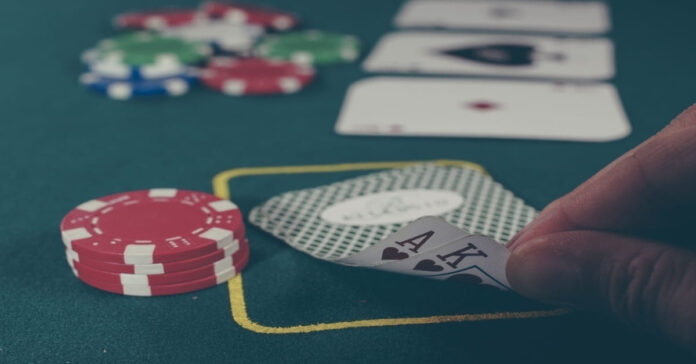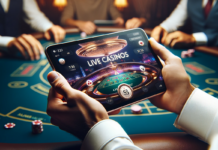Stepping into a casino is like entering a vibrant world where every sound and light is carefully crafted to captivate your senses. It’s not just about luck and chance; there’s a sophisticated psychological game at play, designed to keep you engaged and spending.
The House Always Wins
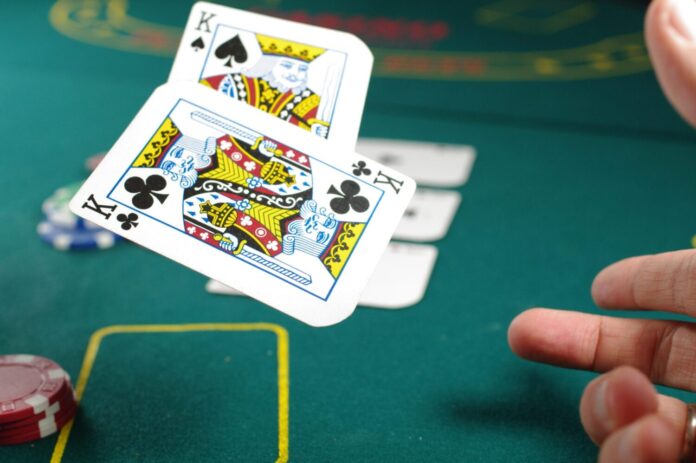
At the core of casino allure, like in Lucky Creek, is a simple mathematical principle: the house always has an edge. Every game, from slots to roulette, is structured so that the odds favor the casino. This isn’t hidden; in fact, it’s quite openly acknowledged.
Yet, the thrill of potentially winning big can overshadow this reality for many players. Casinos are adept at making the possibility of wins more attractive and immediate than the certainty of losses.
You Think You’ve Got the Power
Many games, especially those involving dice or cards, offer players the illusion that they are in control. For example, choosing numbers in roulette or controlling how you throw the dice in craps can make it feel like you have a direct impact on the outcome.
This illusion of control is a powerful motivator that keeps players engaged longer than they might have been otherwise, often leading to decisions that are not in their best financial interest.
Almost Winning Feels Like Winning
Casinos are masters at exploiting ‘near misses.’ A near miss occurs when you come close to a big win but fall short. This could be when two out of three symbols on a slot machine line up with the third just one place off.
Psychologically, near misses are processed in a similar way to actual wins, triggering a rush of dopamine. This biological response can be addicting, driving the player to keep playing in the hope that the next play will result in a win.
Social Dynamics and Casino Chic
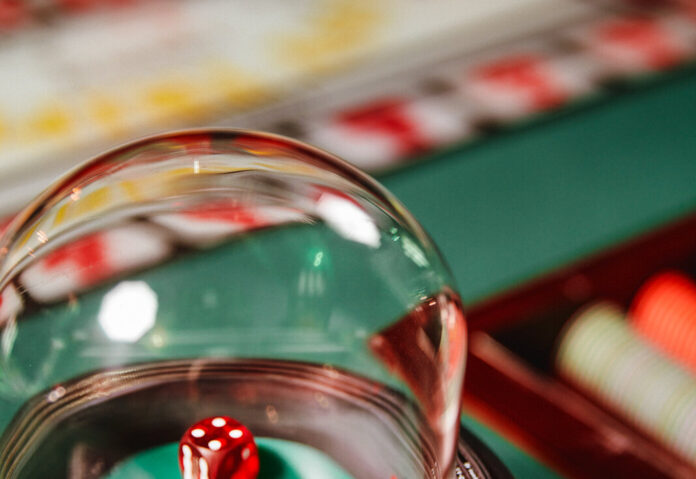
Gambling is often a social activity, and this is something casinos amplify. Being around others who are also engaged in gambling can increase the likelihood of making riskier bets.
There’s a certain prestige that casinos maintain, which can make spending money there seem more like an investment in entertainment rather than a potential loss.
The environment is deliberately styled to feel upscale and exclusive, making each decision to place a bet feel like a part of a larger, glamorous experience.
Time Flies When You’re Having Fun
Ever noticed the lack of clocks or windows in a casino? This is by design. Casinos manipulate environmental factors to make it easy for you to lose track of time. Without natural light or clocks, it’s easier to stay at a game longer than you might have intended.
The longer you stay, the more likely you are to make decisions driven by fatigue and the intoxicating atmosphere rather than clear judgment.
Freebies and Comps: The Cost of Free
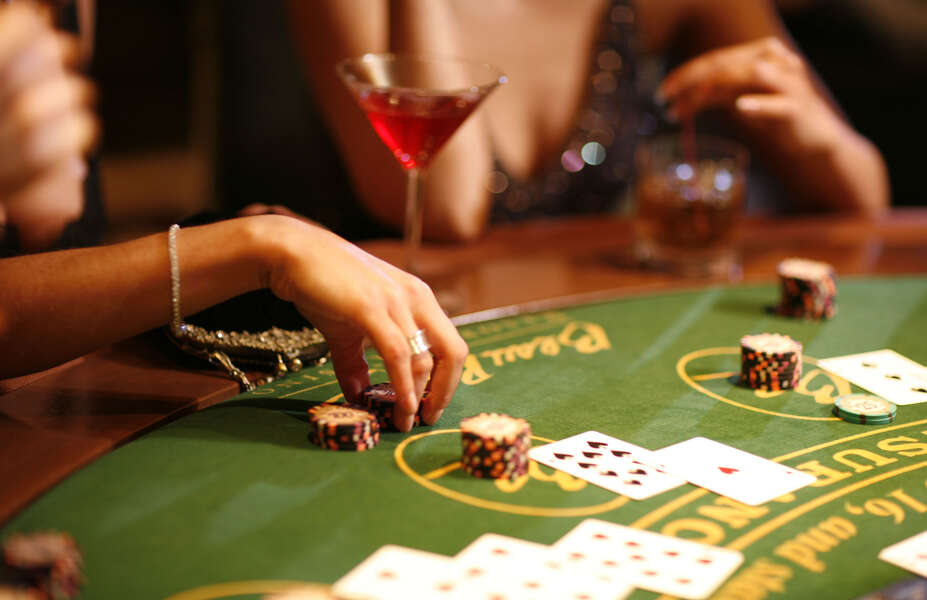
Casinos are notorious for their ‘comps’ – free services or bonuses given to players, like free drinks, meals, or even hotel rooms. While these perks might feel like generous gifts, they serve a specific purpose: keeping you in the casino.
If you’re receiving free drinks, you’re likely to stay longer, and possibly make impaired decisions under the influence of alcohol. Similarly, if the casino provides a meal, you might feel obligated to spend more time or money there as a form of reciprocation.
The Psychological Labyrinth: Stepping into a Behavioral Trap
Casinos expertly design every aspect of the environment to appeal to your senses and push psychological buttons. From the carpet patterns to the ceiling height, everything is calculated.
The bright, flashing lights and constant sounds of machines paying out create an atmosphere of excitement and possibility. These environmental cues can trigger a behavioral response known as ‘classical conditioning’ where the sensory stimuli from the casino become associated with gambling pleasure.
Emotional Rollercoaster: The Highs and Lows of Gambling

Gambling can be an emotional rollercoaster — this is exactly what keeps many players hooked. The anticipation before a gamble, the thrill during, and the aftermath—whether jubilation or disappointment—all produce intense emotional responses.
Casinos amplify these feelings with their celebratory atmosphere when someone wins, encouraging others to keep playing. Conversely, the lows are often mitigated by the chance to “win back” losses, urging continuous play beyond rational limits.
Commitment and Consistency: Why Walking Away Is Hard
The principle of commitment and consistency is another psychological strategy casinos use. Once players make a small commitment, like a minimal initial bet, they are likely to continue gambling to stay consistent with their initial decision.
This commitment can escalate as losses mount because the urge to recover the lost money can make quitting even harder. Casinos exploit this tendency, knowing that the longer you stay engaged, the more likely you are to make risky bets.
The Gambler’s Fallacy: Misunderstanding Chance

One of the most common traps that casino-goers fall into is the gambler’s fallacy—the belief that past events affect future outcomes in random processes. For instance, if a roulette wheel lands on black five times in a row, many will believe red is due soon and bet accordingly.
Casinos thrive on these misconceptions. Each spin of the roulette wheel is independent of the last, but this fallacy can lead players to make decisions based on incorrect assumptions, often resulting in significant losses.
The Fading Rationality: Impact of Fatigue and Alcohol
As the night wears on, fatigue naturally sets in, and if you’re consuming complimentary alcoholic beverages, your decision-making abilities can be further compromised. Alcohol lowers inhibitions and can lead to riskier gambling behaviors.
Combined with a lack of sleep, this creates a cocktail of poor judgment. Casinos are counting on these factors to impair your rational decision-making process and increase their profits.
Technology and Tracking: Big Brother is Betting With You

In modern casinos, technology plays a significant role in shaping gambling behaviors. Loyalty cards and systems that track your gambling habits offer insights to the casino on how to personalize promotions and incentives to keep you playing.
These systems can identify your preferences and betting patterns, using this data to tailor offers that are hard to resist. While this can enhance the gaming experience, it also manipulates players into spending more time and money than they might have intended.
Conclusion: Mastering Mind Games
Understanding the elaborate set of psychological triggers employed by casinos can significantly alter your approach to gambling. It’s crucial to recognize these strategies not as enhancements to your enjoyment, but as sophisticated techniques designed to maximize casino profits at your expense.
By educating yourself about these psychological plays, you empower yourself to make more informed decisions, ensuring your casino visits remain enjoyable without falling victim to the subtle manipulations of the gambling industry.
So, the next time you enter the casino’s enticing doors, remember you’re stepping into a carefully crafted psychological arena—where knowledge and restraint are your best bets.

